YOU ARE NOT ALONE
By Thomas Connors
PHOTOGRAPHY BY MARIA PONCE
STYLING BY THERESA DEMARIA
HAIR & MAKEUP BY DORIA DE BARTOLO
Carolyn Agnew
By Thomas Connors
PHOTOGRAPHY BY MARIA PONCE
STYLING BY THERESA DEMARIA
HAIR & MAKEUP BY DORIA DE BARTOLO
Carolyn Agnew
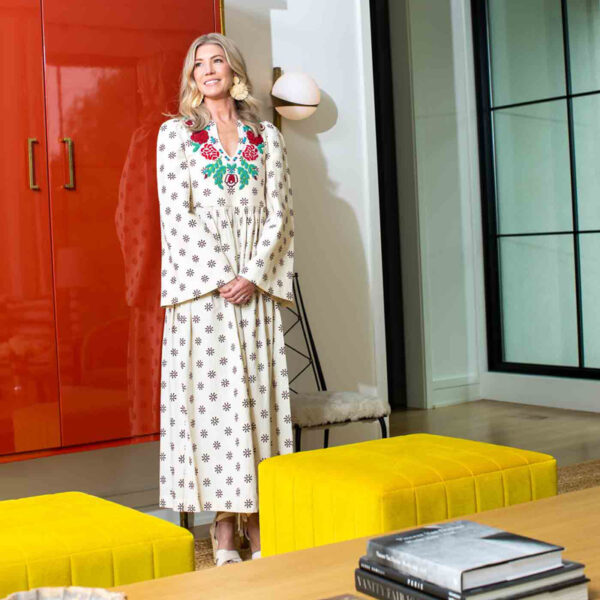
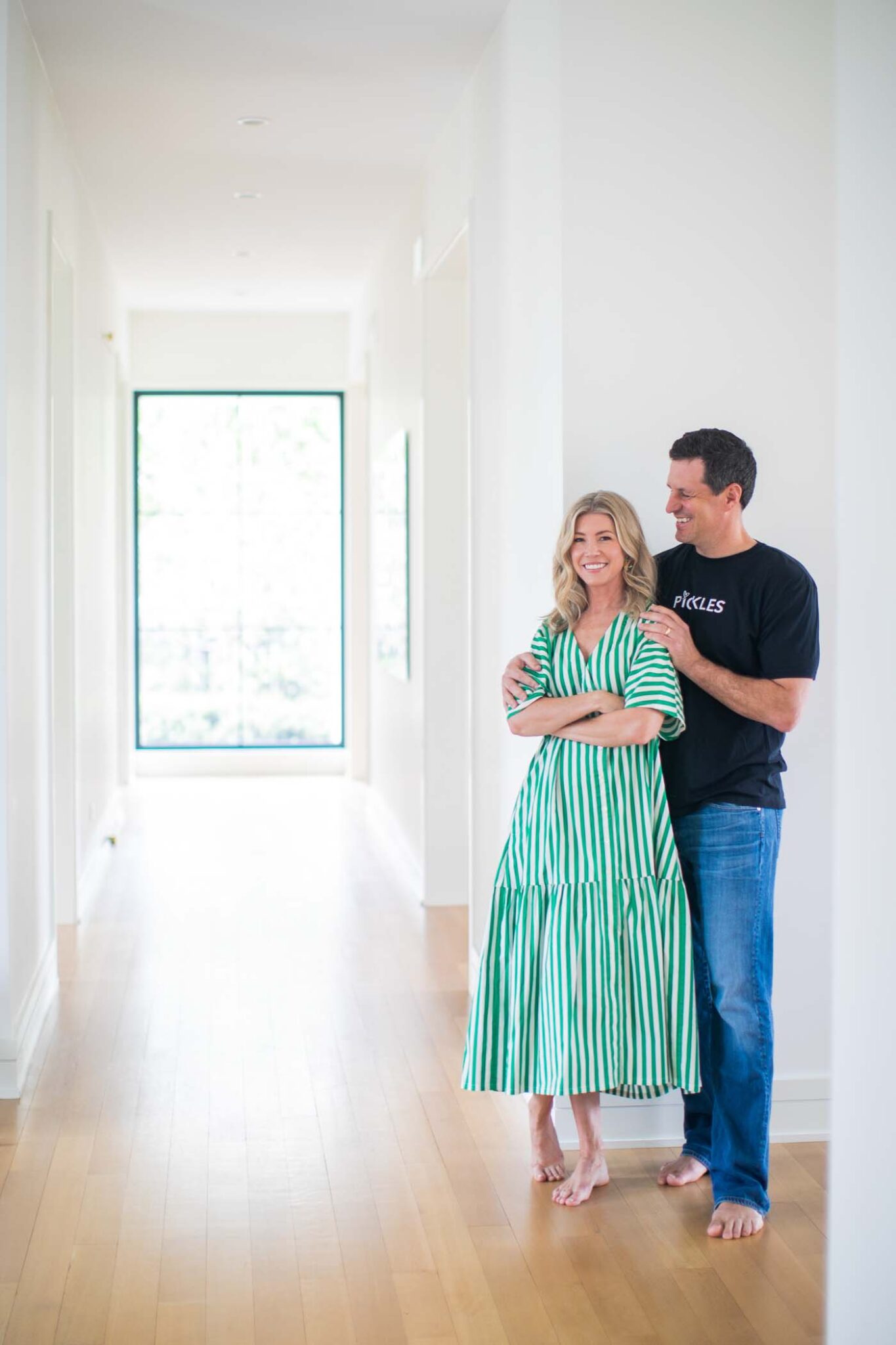
When bad things happen, adults often have no choice but to pick up the pieces and move on. But kids aren’t always equipped to do the same. They’re often at a loss to make sense of a shattering situation, especially when mom or dad is diagnosed with cancer. No matter how hard adults may try, when a household is upended, when daily schedules are disrupted, when there’s no time to sit and talk, children can feel very alone.
In 2019, Mark Agnew, Adjunct Associate Professor of Entrepreneurship at the University of Chicago Booth School of Business, was diagnosed with stage 2 brain cancer. “Our oldest daughter Molly was 9 at the time,” says Carolyn Agnew. “She had wonderfully supportive young friends but still felt lonely and isolated having a dad with cancer. Other kids just didn’t get it. One day, she told Mark that she wished she could hang out with other kids who were in the same boat.”
Soon after Mark received his diagnosis, he learned that a colleague—Ned Smith, a professor at Northwestern University’s Kellogg School of Management—had been diagnosed with glioblastoma, an aggressive form of brain cancer. Smith and his wife, Erin, were friends with the Agnew’s neighbors, Erika and Jeff Hlavacek, who were facing lung and colorectal cancer respectively. The six parents decided “to build a community for our kids during this scary experience,” explains Carolyn.
As they began exploring how to best help their children, the families learned that therapy was crucial. They turned to Kelsey Mora, a dual-certified Child Life Specialist and therapist with extensive experience supporting families through illness and grief. “We were all a little nervous about our very first meeting,” recalls Carolyn. “There were ten kids among the three families, and they hardly knew each other. We invited Kelsey to facilitate some activities with the kids at our first meeting. By the end of the night, the kids were laughing, having fun, and just being kids—it was an enormous relief to all of us. After that meeting, we knew we had to get more families involved.
Seeing how well their children responded and aware that not every family can easily access counseling, the three couples set out to create a group that could provide free, peer-to-peer support and resources for children struggling to navigate a parent’s cancer diagnosis. That effort came to fruition with the formation of Pickles Group. Named for their children’s shared taste for the vinegary condiment, Pickles took shape with the guidance of Kelsey Mora, who now serves as the organization’s chief clinical officer. “Our next critical move was hiring Cassy Horton as executive director,” recalls Carolyn. “Cassy’s entire career has been focused on youth services and K-12 education, working with kids from marginalized communities. This combination of family experience, nonprofit expertise, and healthcare and mental health experience is our secret sauce. Bringing them on board as our three families were facing our most challenging moments is what allowed Pickles to grow to meet this urgent need, despite how difficult things have been for us personally.”
Operating from established research in behavioral science, Mora designed programs targeted to youth, facilitated by trained volunteers who have experience working with young people and backgrounds in education, child development, and other related fields. Revolving around open, age-appropriate information about cancer, the development of coping skills, and establishing connections with peers living the same experiences, Pickles Group programs are a mix of fun games, creative activities, art, team-building exercises, and education.
“In addition to in-person family events,” relates Carolyn, “we currently offer two key programs for kids: Connect Over Cancer, a five-week virtual program that uses an activity-based peer support approach to educate kids about cancer and teach coping skills; and Pickles Jars, a monthly small group program—virtual or in-per- son—offering a consistent, safe, and welcoming space to build relationships and connect with youth mentors. We also recently introduced our Peer Leader team, a group of kids who have been through our programming and feel empowered to help others.”
The nonprofit’s impact is felt beyond the North Shore through a webinar for parents, “How to Talk to Kids About Cancer,” and a nine-page Family Cancer Support Kit offered in English and Spanish that has been distributed in more than 800 hospitals nationwide. Between virtual and in-person programming, Pickles reaches 49 states and nine countries.
“This experience has taught me how incredibly resilient kids can be,” shares Carolyn. “They can handle the truth and are more at ease when they have information that can quiet their imaginations. It has also been such a gift to observe Pickles kids who are inspired to help other kids. For many, this is an important part of the healing process. Sadly, we have lost many Pickles parents, including two of our founders, Ned Smith and Erika Hlavacek. This is the hard reality of the work we are doing. But watching those kids turn their pain into purpose—walking other kids through grief—is awe-inspiring.”
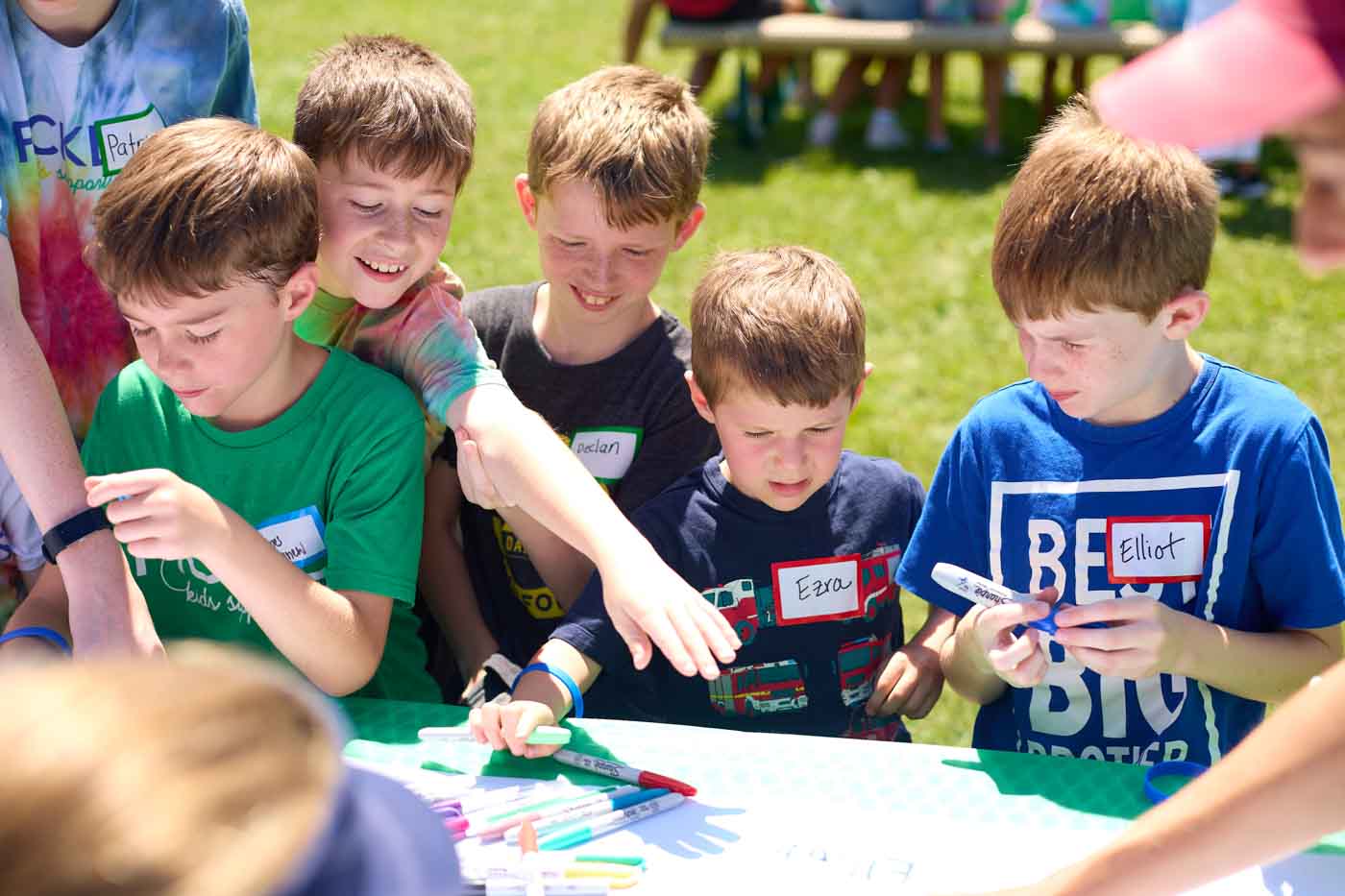
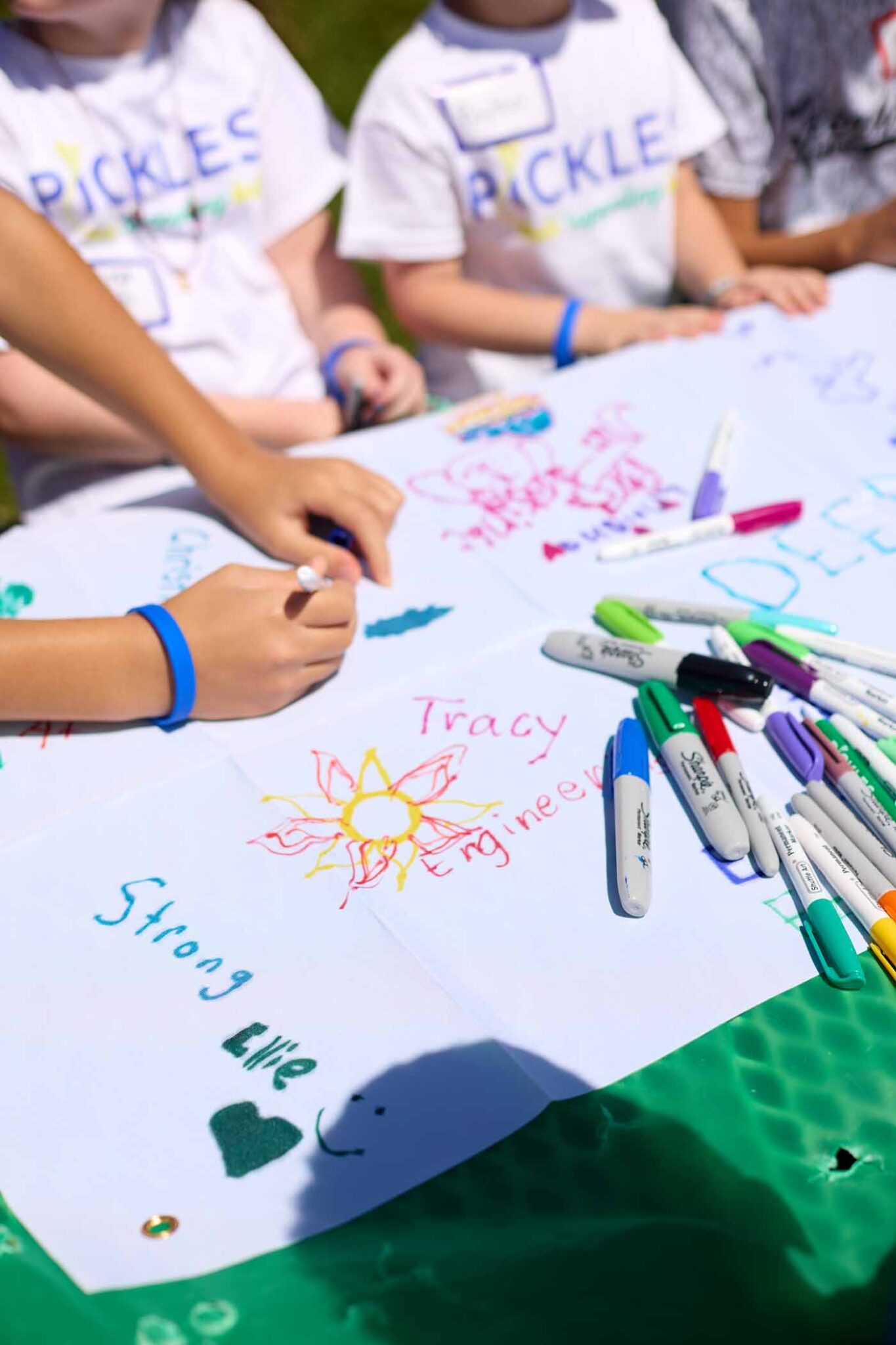
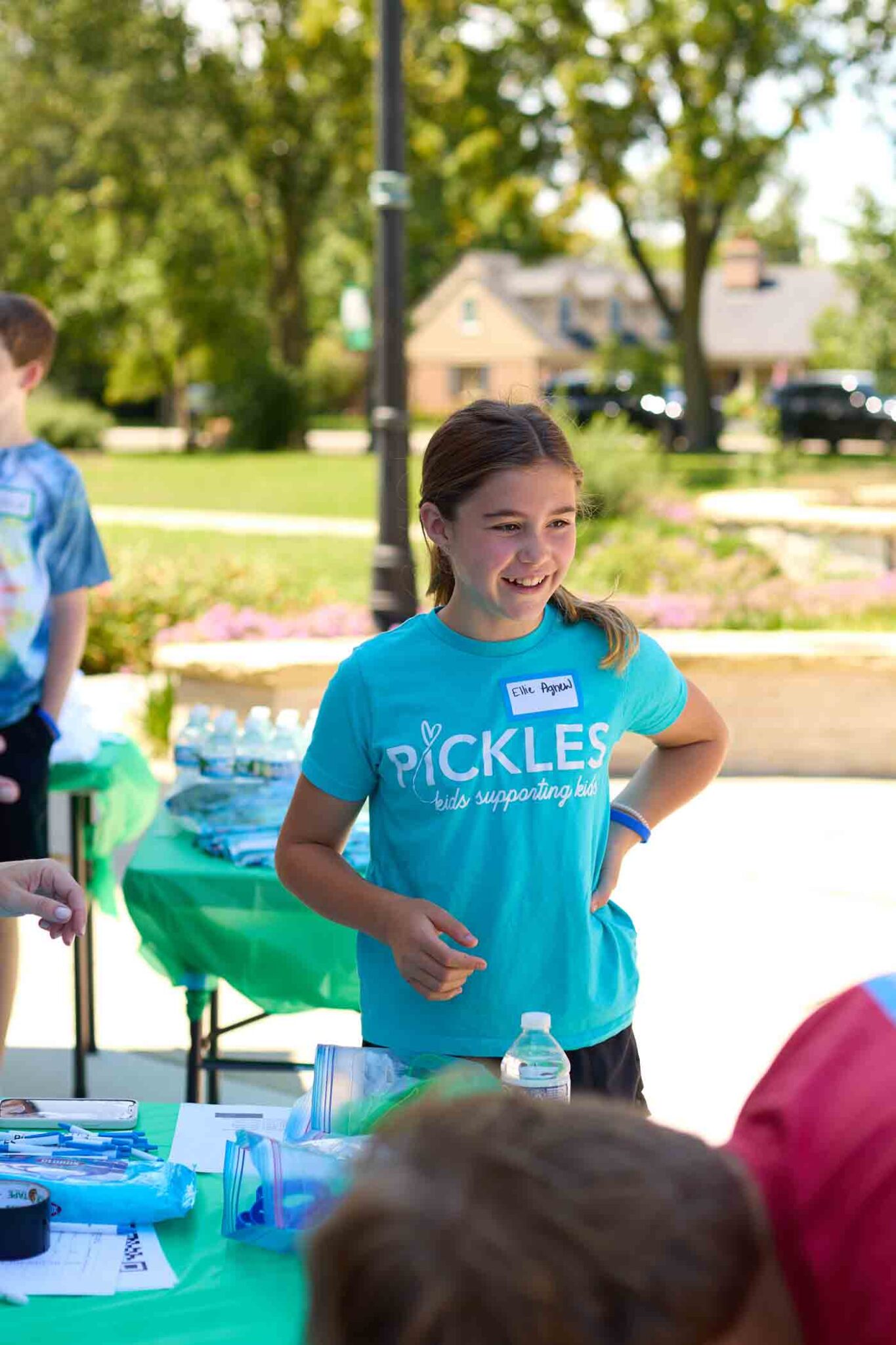
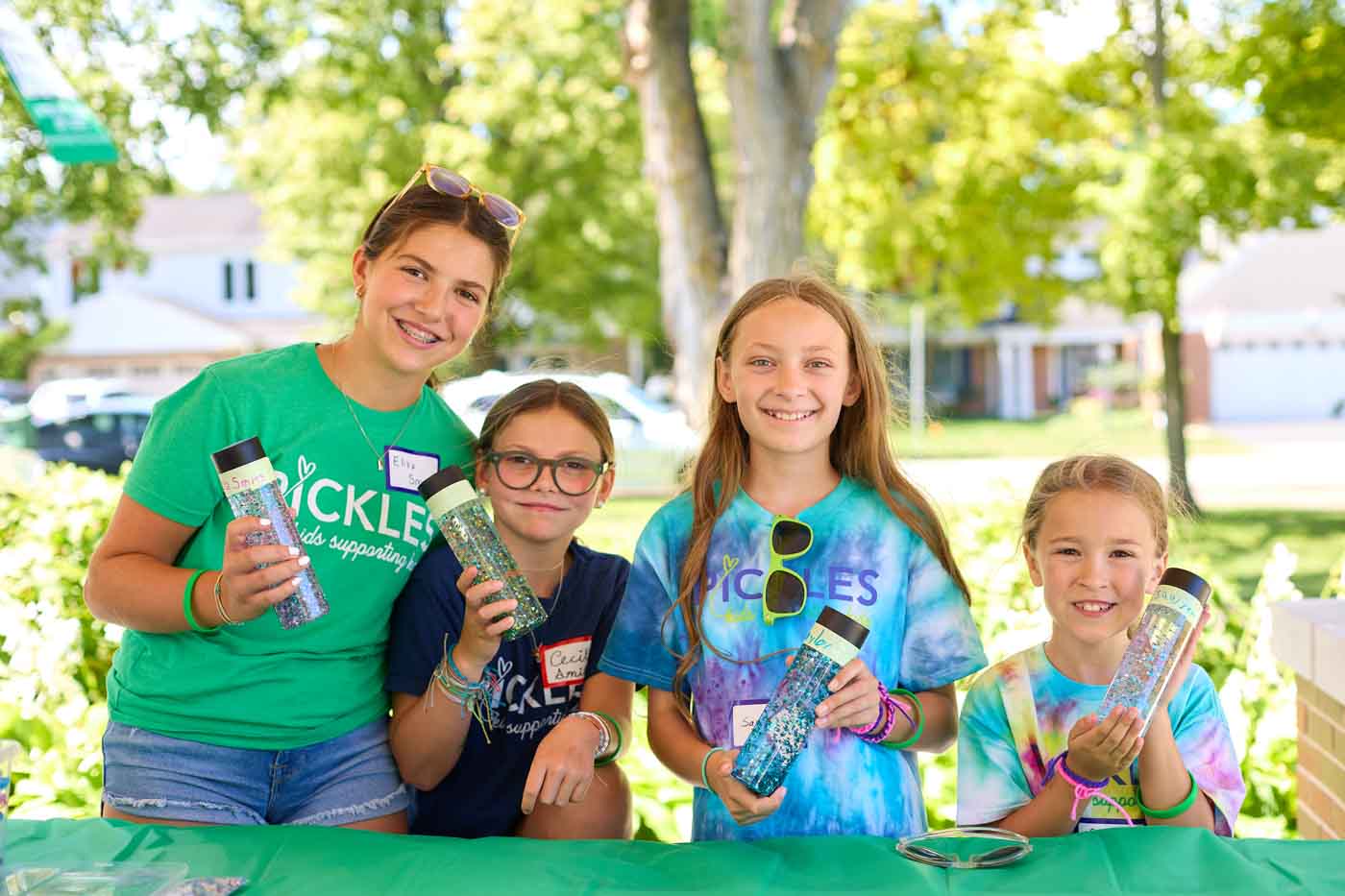
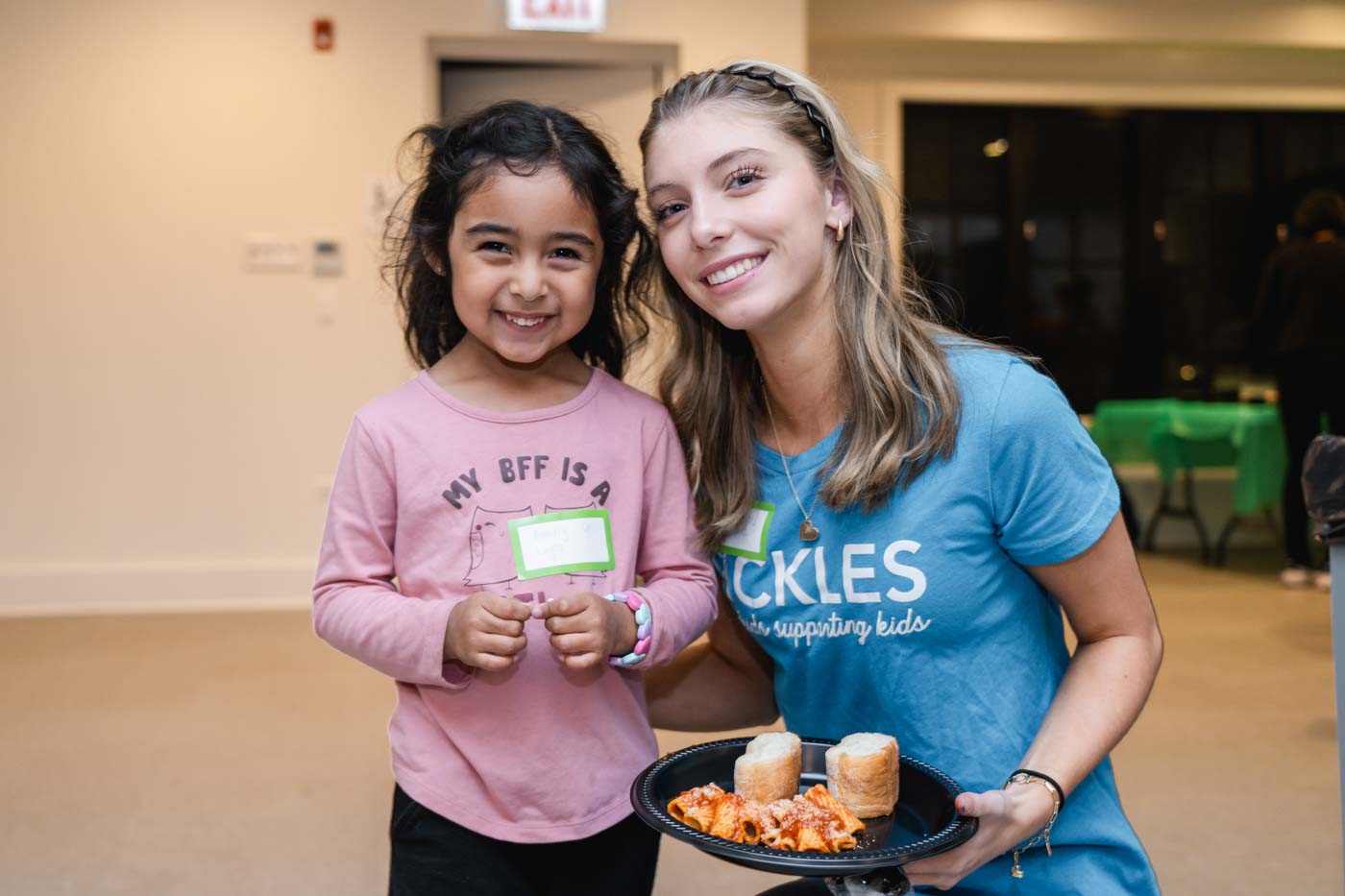
For more information, visit picklesgroup.org.
Sign Up for the JWC Media Email